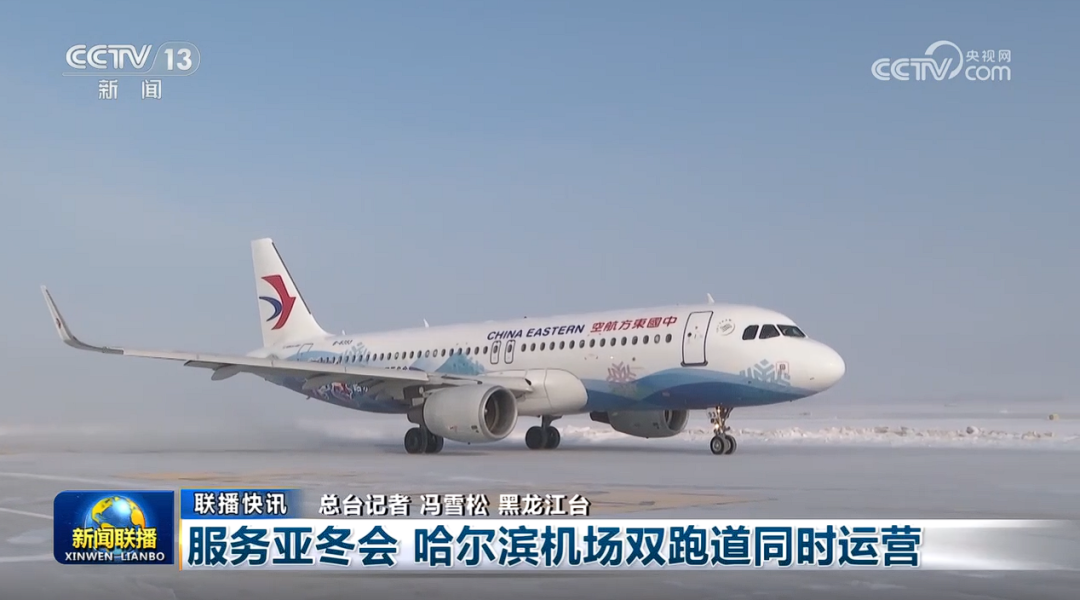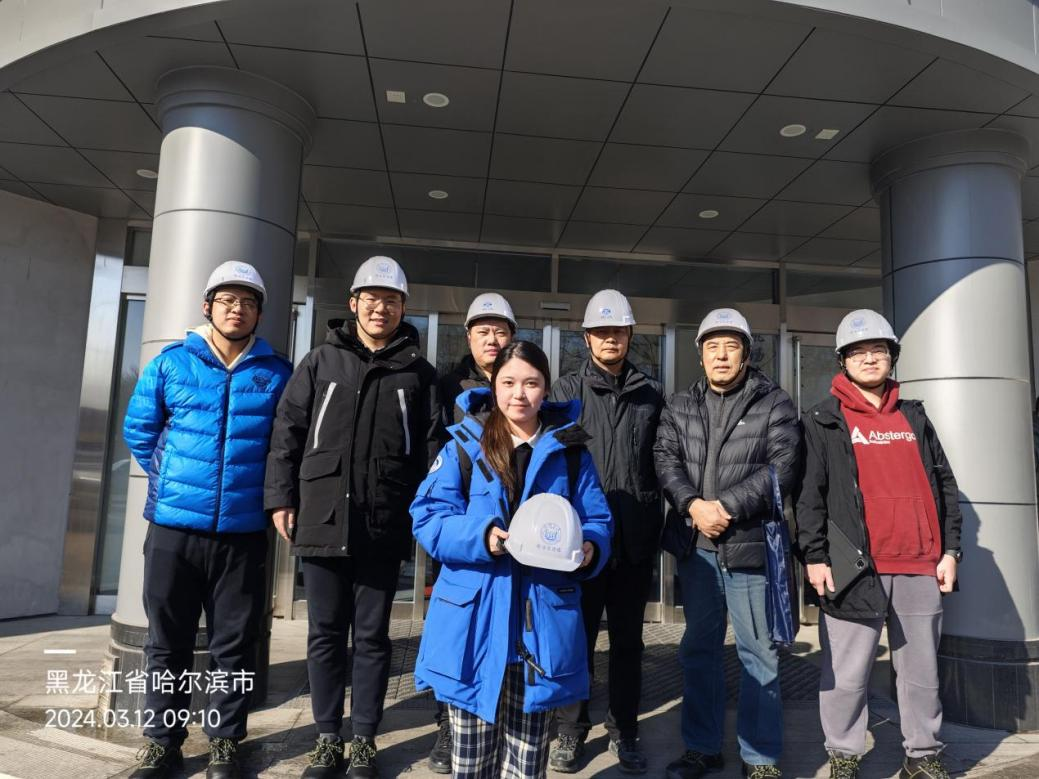
Tongji Wisdom Shines at the Asian Winter Games
Thu, Feb 06, 2025
The 9th Asian Winter Games (AWG) will be officially opened in Harbin tomorrow (7 February). The newly constructed East No. 2 Runway at Harbin Taiping International Airport, which embodies the wisdom of Tongji University, has recently been put into operation and will provide solid transport support for the AWG.

At the start of the new year, Tongji University received a letter of gratitude from the Harbin Taiping International Airport Project Management Command Center. The letter conveyed gratitude to the team led by experts such as WANG Guangbin, JIA Guangshe, SUN Jide, and WANG Xincheng from the Institute of Engineering Management at Tongji University’s School of Economics and Management, as well as key research staff including SONG Tianyi, MIAO Jieru, LIU Jiahao, and HAN Lingxiao, industry experts, PhD and Masters students. The team provided intellectual support for the construction of the Harbin Taiping Airport Phase II Expansion Project, in particular for achieving the goal of “official operation on 24 January”.
Since 2021, the team has been commissioned by the Heilongjiang Airport Group (Harbin Taiping International Airport Project Management Command Center) to undertake a range of tasks, including designing organizational structures, establishing management frameworks, evaluating organizational operations, developing overall progress control plans and tracking management activities for the Phase II expansion of Harbin Taiping International Airport. The team has been instrumental in the practical application and expansion of Tongji University’s pioneering advances in the digitalization of engineering management and integrated control of major engineering projects. These advances cover various aspects, including organizational innovation, progress control and integration of industry and education.

The team’s efforts to promote organizational innovation are evident in their establishment of a novel organizational structure and command system for engineering project management. Their approach was centered on the pursuit of ambitious goals and the cultivation of a high-level position. In collaboration with the command center, the team undertook a comprehensive study of the project management structure and command system for the Phase II expansion of Taiping Airport. (This included the organizational structure of the command center, the project management framework and the maturity model for project management at the organizational level of major air traffic hubs.) The effectiveness of this system was demonstrated by its ability to facilitate efficient cooperation, joint efforts and comprehensive control during the Phase II construction process. It is noteworthy that this system provides a robust organizational framework for the seamless execution of large-scale transportation hub projects, thus establishing a novel template for engineering command systems.
The implementation of overall progress control by the team ensured that the two main objectives of the main project – “completion” and “operation” – were achieved ahead of schedule. Faced with challenges such as the large scale, short time frame, numerous units involved and high coordination complexity, the Tongji management team meticulously developed a comprehensive progress plan for the construction and operational preparations. This plan set out key milestones as a roadmap, schedule, task list and allocation of responsibilities for the Phase II project, thereby guiding the work in an orderly manner and ensuring that key tasks were completed on time. The team carried out progress monitoring and control on site, producing targeted management deliverables on a fortnightly basis. As a result, the project completion date was brought forward from the original 30 September 2024 to 30 July 2024 and the commissioning date was brought forward from 1 April 2025 to 23 January 2025.
The team’s primary objective is to facilitate the convergence of industry and education, with a particular focus on cultivating engineering management talent in China. Large-scale air transportation hub projects are distinguished by their multifarious investment sources, intricate engineering technology systems, and substantial socio-economic ramifications. These projects also present challenges such as the difficulty of predicting progress targets, effective coordination, and resistance to interference. The Tongji management team has developed a dynamic overall progress control theory and technology for large air transportation hub projects based on multi-dimensional coupling. This technology has been extensively applied in over 20 major air transportation hubs in China, including Beijing Daxing International Airport, Chengdu Tianfu Airport, and Guangzhou Baiyun Airport, with notable success in addressing the challenges of progress management and generating substantial economic and social benefits. The team has also established a collaborative model driven by “major engineering practice” for scientific research, industry cooperation, and talent cultivation, resulting in the training of a significant number of top talents capable of meeting the complex engineering innovation demands.

The wisdom of Tongji University is once again shining through in major engineering projects, lighting up a major sporting event.
We protect your privacy. We use cookies to personalize content, provide features, and analyze traffic to our website anonymously and in a privacy compliant manner. By law, we may store cookies on your device if they are strictly necessary for the operation of this site. For all other cookie types, we need your permission. For more information, please see the privacy policy linked below.